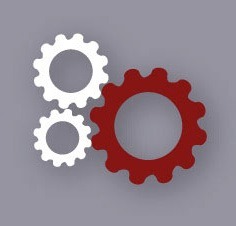Incredible as it may seem the new iPhones sold over the weekend of their release in September 2014 contain 25 times more computing power than the whole world had at its disposal in 1995. That computing power is driving a change as profound as the original industrial revolution. All over the world, young entrepreneurs are “appily” looking to provide on-demand services and products. Why own a car when Uber and provide you with one at a moment’s notice, why cook your own dinner when you can get SpoonRocket to that for you? The same arguments that led to industrial specialisation within a company are being used for buying in those services from outside it.
So it is said companies make sense when the cost of organising things internally through hierarchies, is less than the cost of buying things from the market; they are a way of dealing with the high transaction costs faced when you need to do something moderately complicated. In essence the company should concentrate on what it uniquely does best, buying in the peripheral services from a flexible market, and that is getting easier, and cheaper. Pfizer undertook an review discovering that its most highly skilled workers were spending 20% to 40% of their time on routine work. The company now contracts out much of that.
So the trade goes in both directions – contracting out and buying in. Why employ and in-house counsel when you can buy in the service on a flexible basis?
